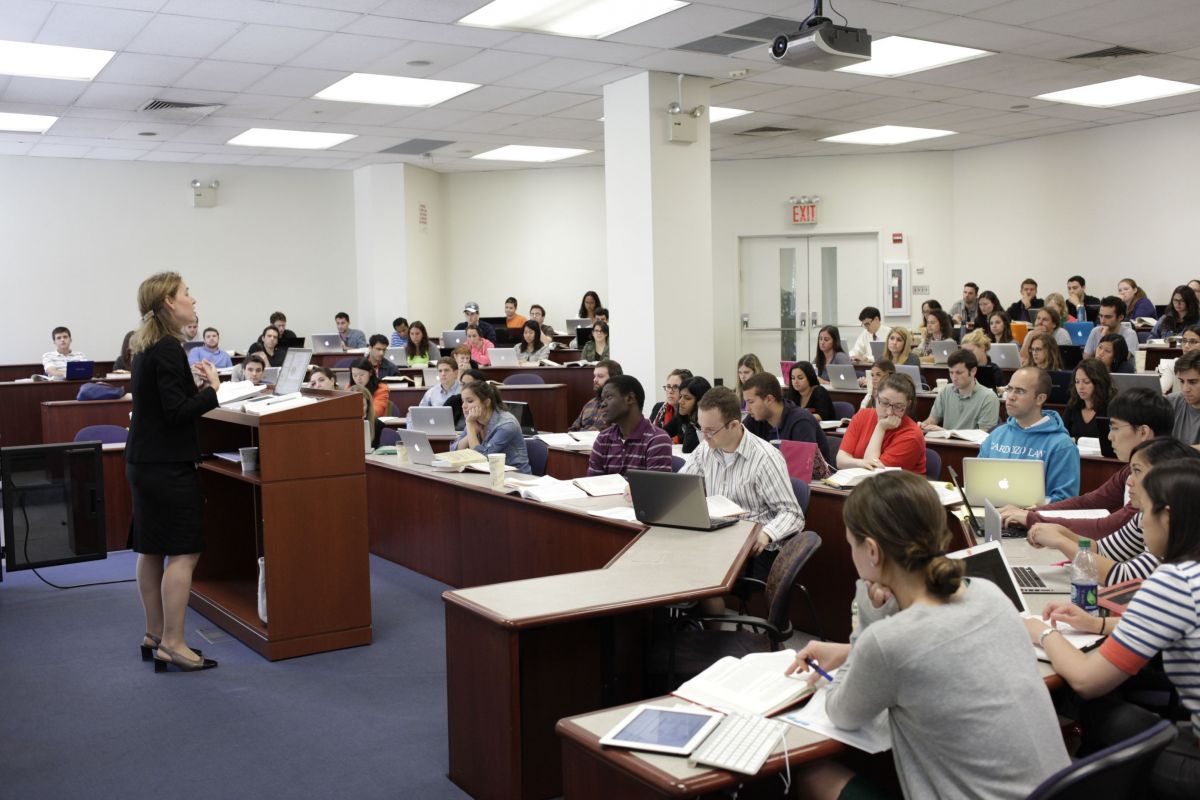The academic program provides numerous pathways to the J.D. degree—all designed to prepare students for highly successful careers in the law. The classroom experience is supplemented by robust experiential offerings in all fields of law through externships, clinics and field clinics. Students publish six journals including the top-ranked Journal of Arts and Entertainment, the Cardozo Law Review, and the Cardozo Journal of Conflict Resolution, as well as competing in competitions through the Moot Court Honor Society and the Trial Advocacy Program.
Key links
Cardozo's Juris Doctor (J.D.) program combines a strong foundation of first-year courses in legal skills and methods with a rich and varied upper-level elective curriculum.
The school offers a traditional law school program of study consisting of 84 academic credits earned over three years. The first-year program consists of 30 credits, all in required courses. Second- and third-year courses are largely elective.
First-Year Curriculum
Fall-Entry Curriculum
Fall Semester (16 Credits)
- Civil Procedure (5 credits)
- Contracts (5 credits)
- Torts (4 credits)
- Lawyering Skills and Legal Writing I (2 credits)
- Professionalism (No credit)
Spring Semester (14 Credits)
- Property (5 credits)
- Constitutional Law (3 credits)
- Criminal Law (3 credits)
- Statutory Interpretation (1 credit)
- Lawyering Skills and Legal Writing II (2 credits)
- Professionalism (No credit)
May/Summer-Entry Curriculum
May-entry students take the same courses over three semesters, beginning in the summer.
Summer Semester (8 credits)
- Contracts (5 credits)
- Criminal Law (3 credits)
Fall Semester (11 credits)
- Civil Procedure (5 credits)
- Torts (4 credits)
- Lawyering Skills and Legal Writing I (2 credits)
- Professionalism (No credit)
Spring Semester (11 credits)
- Property (5 credits)
- Constitutional Law I (3 credits)
- Lawyering and Legal Writing II (2 credits)
- Statutory Interpretation (1 credit)
Lawyering Skills and Legal Writing II (2 credits)
- Professionalism (No Credit)
Upper-Level Curriculum
Upper-level courses vary from year to year, and new offerings are added to the curriculum in response to student interest and global and national events that impact the law. In addition, second- and third-year students may take one law-related graduate course per semester at The New School, located steps from Cardozo's door, and graduate courses offered by other schools within Yeshiva University.
Advanced Standing J.D. for Graduates of Foreign Law Schools
Cardozo School of Law offers an Advanced Standing J.D. degree for graduates of non-U.S. law schools. This selective program is designed for students who already hold a law degree from a qualifying institution outside the United States and who are planning to apply for the bar exam in the U.S.
Benefits of the Advanced Standing J.D. program
- Receive a maximum of 30 credit hours of the required credits for the Cardozo J.D. from prior legal studies in a foreign country. The total number of credits allowed will be determined on an individual basis.
- Complete the J.D. program in two years of study and an opportunity to enroll in an additional semester or year to explore more upper–level, valuable courses at Cardozo.
- Satisfy the legal education requirement to apply for the bar exam anywhere in the U.S.
- Receive more preparation for the bar exam than the one-year LL.M. degree.
- Earn a J.D. at a reduced cost compared to the traditional three-year program.
- Stay an additional semester, at your choice, and earn an LL.M. degree in Intellectual Property or Dispute Resolution and Advocacy.


